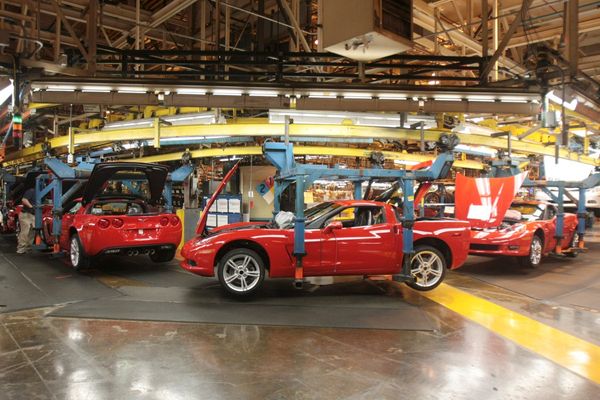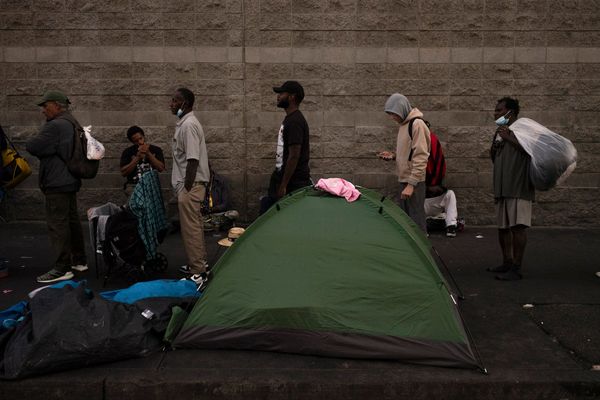
Sydney Today, Australia’s largest Chinese-language digital media outlet, has been running a survey about the NSW state election. One question it put to readers was: “Will you give preference to a party that is more friendly to Chinese-Australian communities?” More than 75% of respondents said yes.
But will the Coalition’s anti-Chinese rhetoric have a negative impact on electorates with large numbers of Chinese-Australian voters, as was the case with the May federal election and Victorian state election? Perhaps, but so far there’s little evidence the Liberals are too concerned about the “China factor”.
Engagement
Earlier this month, the Chinese Australian Forum (CAF) hosted a panel discussion in a Chinese restaurant in Chatswood, North Sydney. Those willing to fork out $100 could hear election pitches from the major parties. The Liberals sent Scott Farlow, a member of the NSW Legislative Council, while Labor sent their opposition treasurer spokesman Daniel Mookhey. The Greens were represented by Jenny Leong, the current member for Newtown.
It looked like a standard “community dialogue” affair until Leong stood up (Farlow and Mookhey had spoken seated). Wearing a green dress, she stood out, not just because she was a woman of Asian appearance but because what she said struck a chord.
Leong started by acknowledging the diversity within the Chinese communities, and went on to speak about Asian Australians’ experience with racism during the peak of the COVID-19 pandemic, their fear of being attacked, and the need to “push back on the very dangerous rhetoric we have been seeing in our society for many years”. She also pointed out that One Nation had wielded undue influence over both major parties. Neither Farlow nor Mookhey thought it was necessary to speak to these concerns.
On the same day as the CAF, Australian China Daily hosted a public event featuring leaders of both major parties in North Ryde’s RSL club. Tang Peiliang, a prolific blogger and a clear Labor supporter, gave a higher mark to Chris Minns. In Tang’s view, Premier Dominic Perrottet’s appearance was emblematic of the Liberals’ transactional approach to the Chinese-Australian voters. Perrottet talked about a possible partnership with four Chinese airlines to bring more Chinese tourists and students to NSW, but as Tang wrote, “As soon as he finished his talk, he exited the room, followed by his entourage, leaving more than 200 people in the room listening to the speech from the Labor leader.”
The premier is a busy man, and he may not be able to afford the courtesy of staying and listening to his opponent and other speakers. This came across as poor form to many in the room — and a reminder they were merely voters to be fought over. Chris Minns managed to endear himself to Mr Tang and many others in the room by talking about racism, social cohesion and the value of multiculturalism.
Given Labor needs to win 11 seats to govern in its own right, it is fighting an uphill battle. After all, the NSW Liberal government did a reasonably good job managing the worst of COVID-19, as well as the economy, and Perrottet has kept Morrison’s and Dutton’s China rhetoric at a distance.
Important seats
The key electorate to watch is Kogarah, where Minns holds a narrow margin of 0.1%. For the opposition leader, winning over as many Chinese voters as possible is vital, given that the Liberals, at a very late stage in the campaign, have endorsed Craig Chung, with Perrottet releasing a video on TikTok showing him walking the streets of Hurstville with the candidate.
They may be hoping that Chinese voters will vote for someone who looks like them, which could turn out to be a well-calculated move: when Sydney Today’s survey asked whether readers were likely to vote for a candidate with Chinese heritage, 57% of respondents said yes.
A few seats with large numbers of Chinese voters — such as Ryde — are now held by Liberal members, some with a safe margin. Not surprisingly, Labor has been working hard in some of these electorates. Willoughby, federally a teal seat, with 22.5% voters of its voters having Chinese heritage, is another interesting seat to watch. An ex-Liberal seat held by former NSW premier Gladys Berejiklian, Willoughby was won by Liberals candidate Tim James in the 2022 byelection. But independent candidate Larissa Penn, who lost to James by a small margin, will run again this time.
WeChat is the most popular social media platform among first-generation Chinese migrants. It has proved to be crucial in earlier federal and state elections, so it stands to reason that Labor politicians have wanted to take advantage of it.
The federal Labor MP for Bennelong, Jerome Laxale, has maintained an active presence on the instant messaging platform, most recently in a video in which he repudiates recent anti-China media hysteria by alluding to The Sydney Morning Herald’s “Red Alert” series. This video, and his general presence on WeChat, embodies a key Labor strategy in relation to Chinese-Australian voters: speak directly to the concerns and sentiments of those voters.
It’s hard to tell if the Liberals have decided to “boycott” WeChat in the campaign, as they claimed to do in the last federal election. But it’s clear that in this state election, Labor MPs and state candidates have been more present on the platform.
Laxale’s active role highlights another well-worn strategy: using the popularity of federal MPs to enhance the prospects of state candidates. Over the past couple of weeks, a one-minute video has been circulating on WeChat showing Laxale standing on a street in Top Ryde next to Ryde’s Labor candidate, Lyndal Howison, with a “Racism Not Welcome” sign behind them. In the video, Laxale and Howison condemn anti-Asian racism, in response to an incident of anti-Chinese racist abuse in the Top Ryde Shopping Centre, which was caught on camera and went viral.
In the same vein, Labor is hopeful of winning the seat of Parramatta, with the retirement of the incumbent Liberal MP Geoff Lee — incidentally, the first member of the NSW lower house with Chinese heritage. Also, we now see Sally Sitou, federal Labor MP for Reid, holding a “mobile office” in Parramatta alongside Labor’s lord mayor, who is running as Labor’s candidate for the state seat.
We should find out very soon which party’s strategies have worked.







